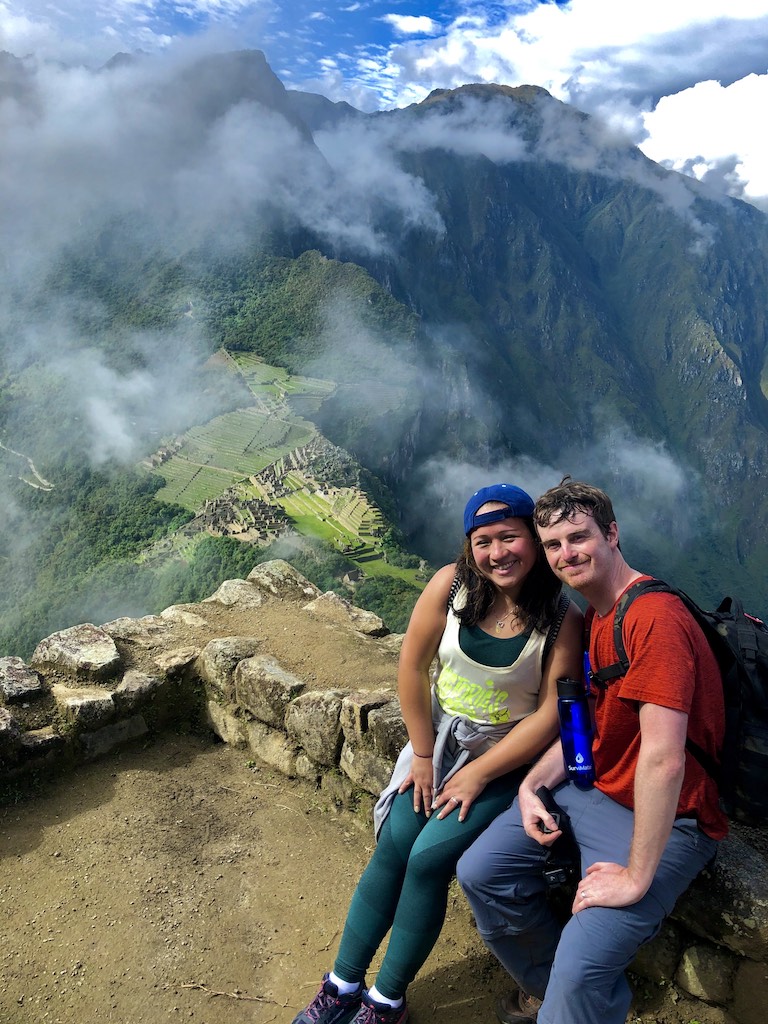Last Saturday, Vanessa and Steven Guthier were visiting one of the wonders of the world: Machu Picchu, the 15th-century “Lost City of the Incas” in southern Peru. By Monday they were living on lockdown in Lima for at least 15 days. Now there’s a risk that the period of their detention could last much longer.
Today the State Department issued a Level 4 health advisory based on the threat of Covid-19, directing all Americans traveling abroad to come home “unless they are prepared to remain abroad for an indefinite period.” The Guthiers have been trying mightily to do that for the past four days, but been unsuccessful due to flight cancelations. Fortunately they’ve been able to stay with relatives in Lima, so haven’t incurred additional travel expenses, but she’s afraid of losing her job.
They are among many hundreds of travelers stranded in Peru since the government closed the border at midnight on March 16, announcing the plan just 24 hours in advance. The American Embassy there has been unresponsive, travelers say, mostly transferring them to recorded announcements or voicemail. In contrast, Israel’s foreign minister, Israel Katz, in cooperation with El Al Airways and Amsalem Tours, an Israeli travel agency, has reportedly arranged to bring more than 550 Israelis home from Peru today.
Elsewhere in the world, in countries where governments provided more notice, travelers, expats and those living a nomadic lifestyle find themselves stuck in foreign lands. Compared to the life-or-death global health crisis that’s erupted, their dislocation, however bizarre and financially burdensome, may seem trivial. But in our increasingly global world, until the coronavirus pandemic, such widespread disruptions were inconceivable.
Certainly unimaginable to the Guthiers when they departed on March 6 for a 12-day vacation that had been one year in the planning. At the time, Peru was reporting just a single case of Covid-19 – involving an airline pilot who had been in Italy. “We thought we’d have plenty of time to come back before things blew up,” Steven Guthier says. “Apparently not.”
Olivia Taylor Balsinger, a native New Yorker and travel writer who’s been living in Copenhagen since June, had been traveling with Jonathan Liveng, her Danish boyfriend, when both Denmark and the U.S. closed their doors to foreign nationals. Now that she can’t get back into Denmark and he can’t enter the United States, they are spending time together in Krabi, on the west coast of southern Thailand, “quarantining ourselves in fresh air in a remote bungalow,” she said in an e-mail. “We are taking everything day by day.”
Canadians Susan Kerr and her husband, Blair, retirement nomads since 2018, have no place to go home to. (Their last domicile was in Grand Cayman.) Currently they are living in Semaphore, South Australia, “avoiding contact with people as much as possible and enjoying life on the beach,” she writes. Having canceled plans to spend the spring traveling in Southeast Asia, their next step is to extend their 90-day Australian visa until July.
Though Americans Valerie Fortney Schneider and her husband, Bryan, have been living in Trivigno – a small town in southern Italy – for ten years, “it is a bit freaky being overseas with international travel shut down,” she says. Professional genealogists, they had planned to return to the U.S. in April, attend a convention in Ohio and celebrate her father-in-law’s 90th birthday. Now it looks like they couldn’t make the trip even if they wanted to: They are currently living in quarantine, the convention has been canceled and Delta Air Lines has suspended all international flights through the end of next month.
Likewise, Nanine Alexander, a former journalist and her wife, Tamsen Wassell, a human resources consultant, last week called off a 10-day trip scheduled for late March to visit elderly or infirm family and friends in Michigan and the Pacific Northwest. The couple have lived in Barcelona for the past six years as they transitioned to retirement, and the city has been on lockdown since Sunday.
They can go to the market or the pharmacy, and walk the dog, but only one of them at a time – not together. Iggy, their aging pet, is perhaps the only beneficiary of the situation, now getting double the usual number of walks each day.
“Police are patroling more than I have ever seen them,” Wassell says. “Outside the grocery there is a sign that no more then 10 people are allowed in at a time. Clerks are dressed in over-the-head gear, almost like burkas. I have seen guards outside grocers, managing the number of people inside.”

Debbie Bennett in the Galapagos.
For those accustomed to freedom of movement, the restrictions imposed in foreign countries may be especially unnerving. Debbie Bennett, an Australian caught in the Lima shutdown, for example, has not been allowed to leave her room at the Leon de Oro Inn since Monday. The former manager of a girls’ sports program at a school in Melbourne, Bennett tried to get some exercise by running up and down the stairs, only to be turned back by a hotel employee.
Bennett, who retired at the end of last year, left home February 10 planning to spend about six weeks on the road, including three organized tours and time in between them on her own. Off the grid, in the Galapagos Islands, she didn’t know how quickly the virus was spreading. Then she arrived in Lima, the meeting point for a tour to the land of the Incas, unaware that the trip had been canceled and that the city was about to go on lockdown. She’s still hoping to fly home April 1 on the original flight that she booked.
Though there’s been considerable shaming on Facebook of people who sallied forth as panic grew to pandemic, I am among those who didn’t cancel plans. When my husband and I left New York on January 26, for a six-week sojourn in Southeast Asia, it looked like the virus was relatively contained. Not so by March 10, the date of our scheduled return, from Singapore.
The evening before, we did a last-minute reroute when we discovered that our two-hour layover in Taipei had turned into a full-day stop. Concerned about imminent border closings and eager to get back on U.S. soil, we re-booked a non-stop to San Francisco on United Airlines, with continuing service to New York. Fortuitously, we got back before the rush; on the day we traveled, planes and airports were empty.
Five days later, they were mobbed with travelers hurrying home. I wish we could take credit for the prescience and good timing that brought us back just under the wire. But really it was little more than dumb luck.
Deborah L. Jacobs is the author most recently of Four Seasons in a Day: Travel, Transitions and Letting Go of the Place We Call Home. All her travel is self-financed. Follow her on Twitter at @djworking and join her on Facebook here. You can subscribe to future blog posts by using the sign-up box on her website’s homepage.
RELATED POSTS
Travel in Asia as the Coronavirus Story Swirls
Why the Coronavirus Hasn’t Made Me Cancel Plans
 Vanessa and Steven Guthier hiked last weekend in Machu Picchu. Two days later, they found themselves locked down in Lima. Photo courtesy of Vanessa and Steven Guthier.
Vanessa and Steven Guthier hiked last weekend in Machu Picchu. Two days later, they found themselves locked down in Lima. Photo courtesy of Vanessa and Steven Guthier.
Seems self serving this time to comment but I always love reading Deborah’s writing. Interesting the experiences people are having as the travel web tightens.
Thanks so much for participating in this story, Tamsen. I hope others will chime in and share their experiences in the comments section of this post.